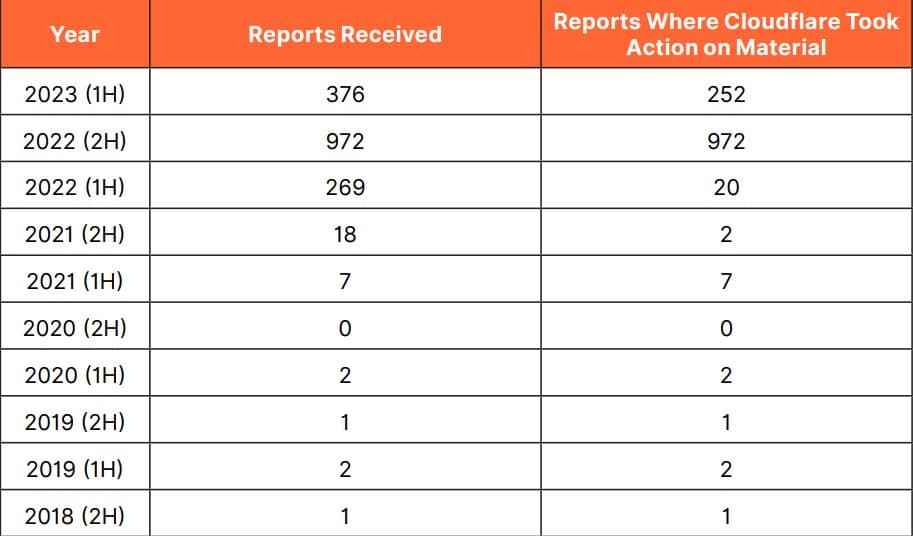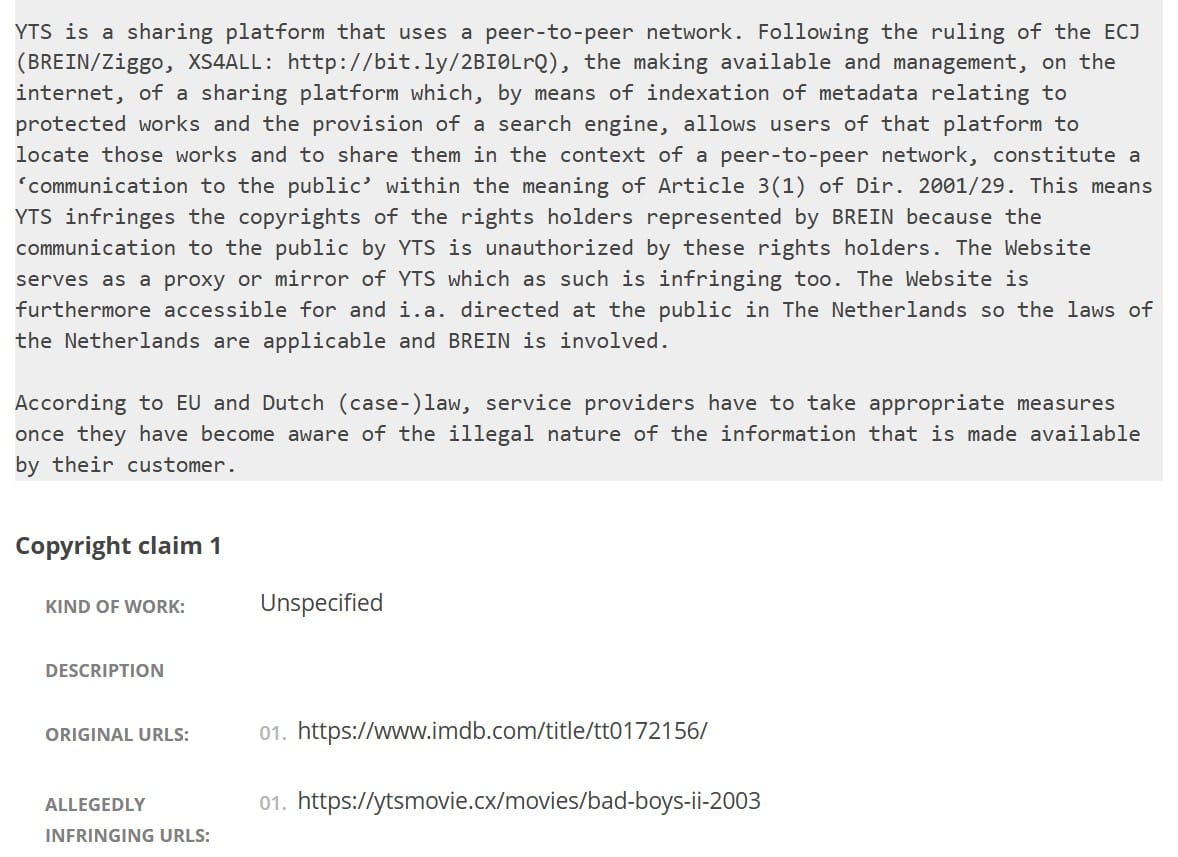 In the fall of 2002,
Suprnova.org
launched as one of the first sites dedicated to sharing ‘torrents’.
In the fall of 2002,
Suprnova.org
launched as one of the first sites dedicated to sharing ‘torrents’.
At the time, Napster has just shut down, leaving a void in the file-sharing landscape. A Slovenian teenager named Andrej Preston has just discovered the new BitTorrent protocol at the time and decided to embrace it.
Andrej, commonly known under the nickname ‘Sloncek’, started Suprnova out of personal interest, as he couldn’t watch some TV-shows in his home country. Like many of these early hobby projects, it started as a very primitive setup, hosted on a Linux box at Peston’s home.
In the weeks that followed, word of the “Universal BitTorrent Source” spread like wildfire, maxing out the meager 16kb/s upload capacity of the residential internet connection. Faced with this explosive growth, Suprnova was moved to an external hosting company, with many mirror sites later helping to distribute the traffic.
December 19, 2004: Suprnova.org Shuts Down
In record time, Suprnova became one of the most visited websites on the Internet. It became the go-to site for pirates who had discovered the unlimited sharing capacity of BitTorrent and the community that came with it. It also served as inspiration for other torrent sites that launched later, The Pirate Bay included.
20+ Years Ago…
Just as quickly as it rose to stardom, exactly twenty years ago today on December 19, 2004,
Suprnova went dark
. Initially, not much was known about the circumstances, but Andrej later said that he pulled the plug after he started reading about himself in the newspapers. Something
didn’t feel right
.
In hindsight, this was likely a pivotal decision. A month after the shutdown, police raided Andrej’s home, taking equipment and media as part of a criminal investigation. The case was closed in October 2005, but it’s not hard to see how things may have ended differently if the site had been active.
Not all decisions made at the time were great. Following the demise of Suprnova, Andrej became the spokesperson for the ambitious file-sharing software startup
eXeem
, which failed miserably. The same can be said for the
relaunch of Suprnova
in 2009 by The Pirate Bay, which Andrej wasn’t actively involved in. That never really took off.
Academy of Art University
Instead of focusing on new file-sharing ventures, Andrej explored his creative side. He dreamed of being in the film and TV business and wanted to study in the United States, close to LA. Eventually, he was admitted to Academy of Art University in San Francisco.
Ironically, the funds he earned from Suprnova helped him pursue this dream, but the money eventually dried up and Andrej worked as a Resident Assistant to get free room and board. Together with funds scraped together by his parents, he made it though school.
During this time, Andrej also gained experience at an online video production company, working for free. He was also the driving power and creative mind behind
TorrentFreak TV
, which offered more room to improve his skills between 2008 and 2010. While that project stopped after two seasons, the passion for online video certainly wasn’t over.
A YouTube Star…
Today, Andrej is the owner of “
The Infographics Show
” a YouTube channel with more than 14 million subscribers. The first videos were posted on Suprnova’s video portal back in 2011. There are still traces of Suprnova.org on YouTube today, as the channel’s oldest videos
display its logo in their intro
.
Video Portal (2011)
With more than a decade of YouTube experience, six billion video views, and a team that consists of nearly 200 people, Suprnova’s founder has come a long way. But what was this journey like? About time to hear his thoughts again, twenty years after he pulled the plug.
We typically don’t post interviews in full, but we gladly make an exception here for what is a truly authentic story, with remarkable depth and detail tracing back to the early days of torrents. In addition, it offers a unique perspective on copyright, online entertainment, and life in general.
——
TF:
Looking back 20 years, what’s your overriding feeling about Suprnova.org? Pride, regret, something else?
Andrej:
Honestly I feel like I’ve lived quite a few lives. Do I look at it with a particular feeling? It’s kind of hard to put into words. I’d say for most of my adult life, I saw it as just something that happened. It’s the only life I know.
As I’m quickly approaching 40, I view the past with quite different eyes. I am proud of myself and the size of the project I ran starting at the age of 15. Is my view of copyrights and business in general as naive as it was back then? Absolutely no, and I wouldn’t risk doing something like that today.
But overall, in short, yeah, I am proud. I am proud of the project and who it made me today. I also feel so lucky for the life long friends I made because of it.
TF:
The profits generated though Suprnova allowed you to study in the United States. Why did you choose the Academy of Arts in San Francisco? How did that go?
Andrej:
I used all the money I made to put myself through school. I loved film & tv and I felt that, the only way to do it at the scale I dreamt of, required me move to the states. But I was never a great student.
My grades through school were pretty much between a C and a D. I attended a Waldorf school through all my school years but even that felt like it wasn’t right for me in terms of education. So, I had to choose a school that offered a TV Producing major that had open enrollment and I really wanted to be close to LA.
I worked through the whole school process. I was a Resident Assistant for 3 out of 4 years to get room and board for free and I worked for almost two years for free as an intern at an online video production company to gain additional skills and experience.
I also ran out of money to continue paying for my school and had to have my parents take out a loan against their property they lived in and I grew up in. Having to study and my homework be something I was so passionate about made it really easy to get good grades. It was the first time in my life that I felt school came easy.
TF:
After handing over the Suprnova.org domain to The Pirate Bay briefly, you later regained control. In 2011 you relaunched is as a video portal, briefly showing TorrentFreak TV episodes and a new project called the “Infographics Show”. Where did the idea for the Infographics Show come from?
Andrej:
I realized that I really loved everything internet and as much as I felt hurt by being torn to pieces online by people for launching eXeem – which was also a financial debacle – I needed to embrace what I really loved.
I was fortunate enough to be given an opportunity by you to record some TorrentFreak episodes, which actually helped me learn a lot more about the online video streaming landscape.
I was also a huge fan of statistics, data and visual representations of them. I had an idea that if I just took a static infographic and made it animated people would for sure want to watch it, as that’s something I’d want to watch. The show has evolved a lot since then and is an ‘infographic’ only in its name.
TF:
It’s been over a decade since you launched The Infographics Show on YouTube, which now has millions of subscribers. How do you look back on the past years? Any milestones you can share?
Andrej:
The weird part about milestones is that the bigger they are, the less they mean. The Infographics Show now sits at around 14.7 million subscribers with over 6 billion views and over 5 thousand videos made.
The Infographics Show (2024)
I believe I made about 25 videos between 2011 and 2016 and had a few thousand subscribers. It was the video ‘
North Korea vs United States – Who Would Win The War
‘ that started getting some views after a year of publishing, that made me look at my YouTube channel again.
North Korea vs United States
There was also a comment by the best friend of my spouse who at the time expressed doubt about my earning potential by making a comment “but does the lightning really strike twice”, suggesting that I had luck with SuprNova and that was it. I felt like I had something to prove to myself at that point and decided to make a few more videos.
My biggest memorable milestone was when I made another video with a similar theme and it received 10,000 views in a day. That was the time I felt I can do this and I am on to something.
Of course the million subscribers milestone and then the 10 million were special (I made sure I invited the person who made the comment about having luck to my 10 million subscribers celebration, but they have no idea how their comment ever affected me or that I even knew about it).
The milestones are different now, there isn’t just The Infographics Show (even though that’s what people mostly know about). There are many other channels, including
SCP Explained
. It’s also not just me. The team is large, close to 200 people. I am lucky I get to work with my best friends and I am lucky to once again have my brother working with me.
And while a lot of people look at The Infographics Show and see that it’s generating smaller numbers than even a few years ago, the amount of watch time has never been higher.
Between all the channels, we’ve generated over 300 million watch time hours and, when putting that in perspective, that’s a lot more than a lot of my favorite TV shows that inspired me ever did. Yet of course it still feels like it’s not enough.
300 Million Watch Hours
TF:
Did any specific aspects of your experience with Suprnova influence your approach to creating and sharing content on The Infographics Show?
Andrej:
I think SuprNova taught me at a very young age how to project manage and delegate. At the time I had no idea what I was learning but it made me the producer I am today. I also believed from the start that the way I’d like to make money is by making content available to everyone and I’ll make the money against the ads shown to them.
I believe there are so many ways to make money from popular content. Even views that aren’t directly monetized today can still contribute to revenue I make in the future. Whether that’s via the person watching more of my content but seeing ads, telling their friends about it, or maybe just showing the algorithm that it’s worth watching and spreading the reach.
TF:
20 years ago you were worrying about cease and desist letters from copyright holders. Today, you’re an established ‘creator’ yourself. Has this changed your outlook in any way?
Andrej:
Ha, this is a funny one. I honestly have no real recollection of receiving cease and desist letters, maybe my brain just erased those memories. But I do often ask myself if I’m a hypocrite as I send a takedown notice.
I have to explain this part a little. I generally ‘copyright claim’ reuploads of my content on YouTube. This means other people will upload it and I will earn the money based on the ads shown on those videos.
I will sometimes copyright strike videos, where you can see somebody is just downloading my videos and reuploading them, without even editing them or giving them any new value. It’s rare but I do.
This is where you might call me a hypocrite but let me explain myself. I believe that all media (entertainment and the rest) has a significant impact on who we are and how it shapes us. I believe that there should be a way for everyone to have access to it, via different sources.
I think people who want a better experience should pay for those experiences, but I think those who would otherwise be deprived of ever having the opportunity to see it in any way, should have a chance to see it.
I feel that if I hadn’t had a chance to use certain applications as a kid, due to being in a country where access was limited, and coming from a family that was not well off, I would have not had a chance to compete on a global market at the same level as someone who had the privilege from a young age to have access to all of it. The same goes for media and entertainment. Those experiences show a person what is possible.
Since my videos are already completely free on YouTube, I don’t think there is a reason for somebody to be uploading to the exact same platform where I already provide everything, and try to collect money from it. If people were putting my videos somewhere where I could not put them myself, and that was the only way for people to see them, I would have absolutely no problem with that.
TF:
Suprnova existed in a different era. How do you view the current state of online entertainment and piracy, and what are your thoughts on how the industry can adapt?
Andrej:
SuprNova existed because it needed to exist. This was a time that old school business models met new emerging technologies. The world needed to change and adapt to how people consume all sorts of media. If SuprNova didn’t exist, you would be talking with a different person right now but the questions would have been the same.
The current state of online entertainment is something I am trying to predict as it will affect me massively.
I think the golden age of streaming is already over. Every legacy media empire was forced to come up with an online streaming platform. They all competed for subscribers so we saw the lowest prices we will ever see. We were also able to pick what kind of content we preferred and paid only for those platforms. I believe this is now over and we are moving into a rapid consolidation of media into what we will soon see as old school TV packages.
Streaming platforms will be more expensive and if you want to have access to all the content available, it will cost you A LOT. TV ad dollars are moving online. Sadly I believe we will eventually get to the point where even the most premium and most expensive option will be ad supported and there will not be a way to pay for services without ads.
While I don’t follow much of what is happening in the piracy world nowadays, I think once we get there, you will see a lot more people resorting to piracy, once again.
One thing we shouldn’t leave unmentioned is the advancement of AI and video generation. My prediction is that platforms like YouTube and others will be flooded within the next few years with auto generated content.
While it’s scary to think how it will affect my bottom line, I just have to accept that I was a part of technological revolution at some point and I can’t fight it. I have to see how I can adapt and embrace it and understand that nothing stays the same for long.
—
TF:
We want to thank Andrej for his openness and insight he provided over the years. Looking back at more than two decades of following the piracy scene, this is one of the stories that stands out most. We’ll check in again in another decade.
From:
TF
, for the latest news on copyright battles, piracy and more.
chevron_right
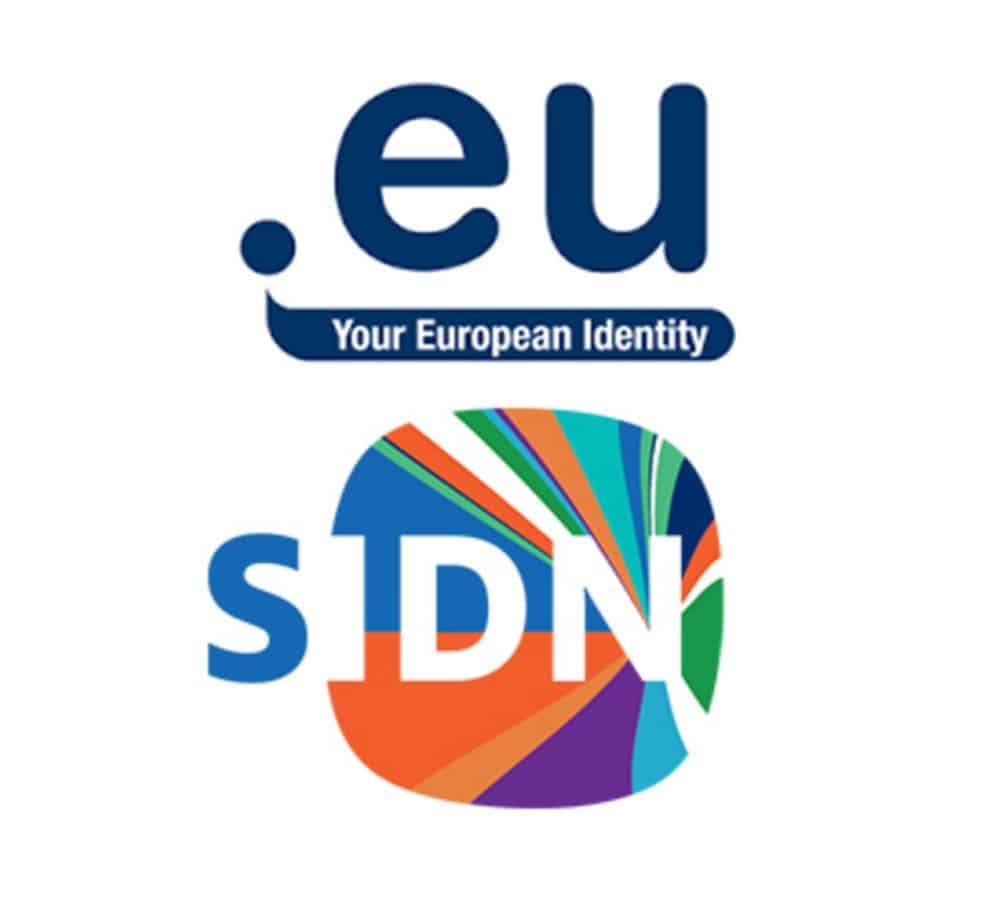 There are plenty of options for copyright holders to frustrate pirate site operations, but attacking their domain names is particularly effective.
There are plenty of options for copyright holders to frustrate pirate site operations, but attacking their domain names is particularly effective.
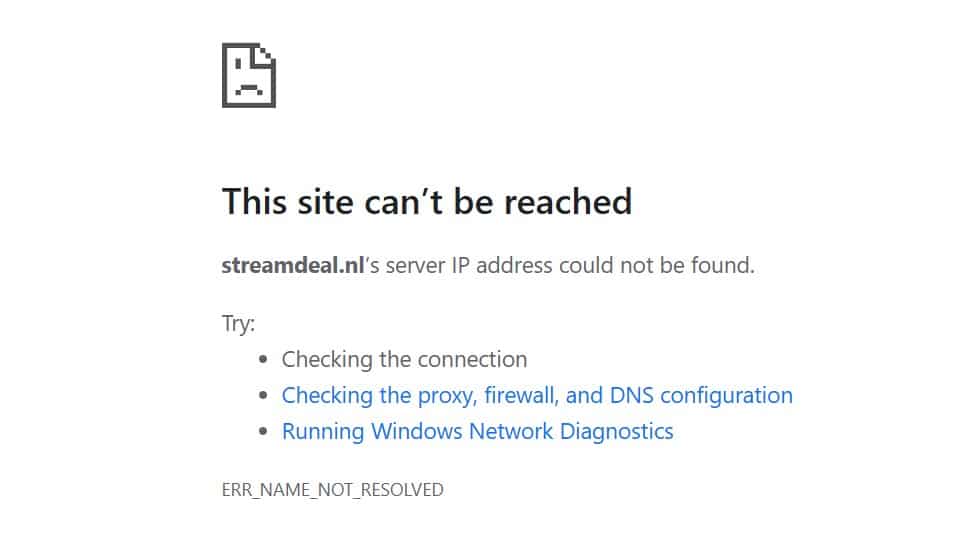

 For those who enjoy reading professional reports filled with statistics and detailed analysis, the piracy landscape has an endless supply.
For those who enjoy reading professional reports filled with statistics and detailed analysis, the piracy landscape has an endless supply.
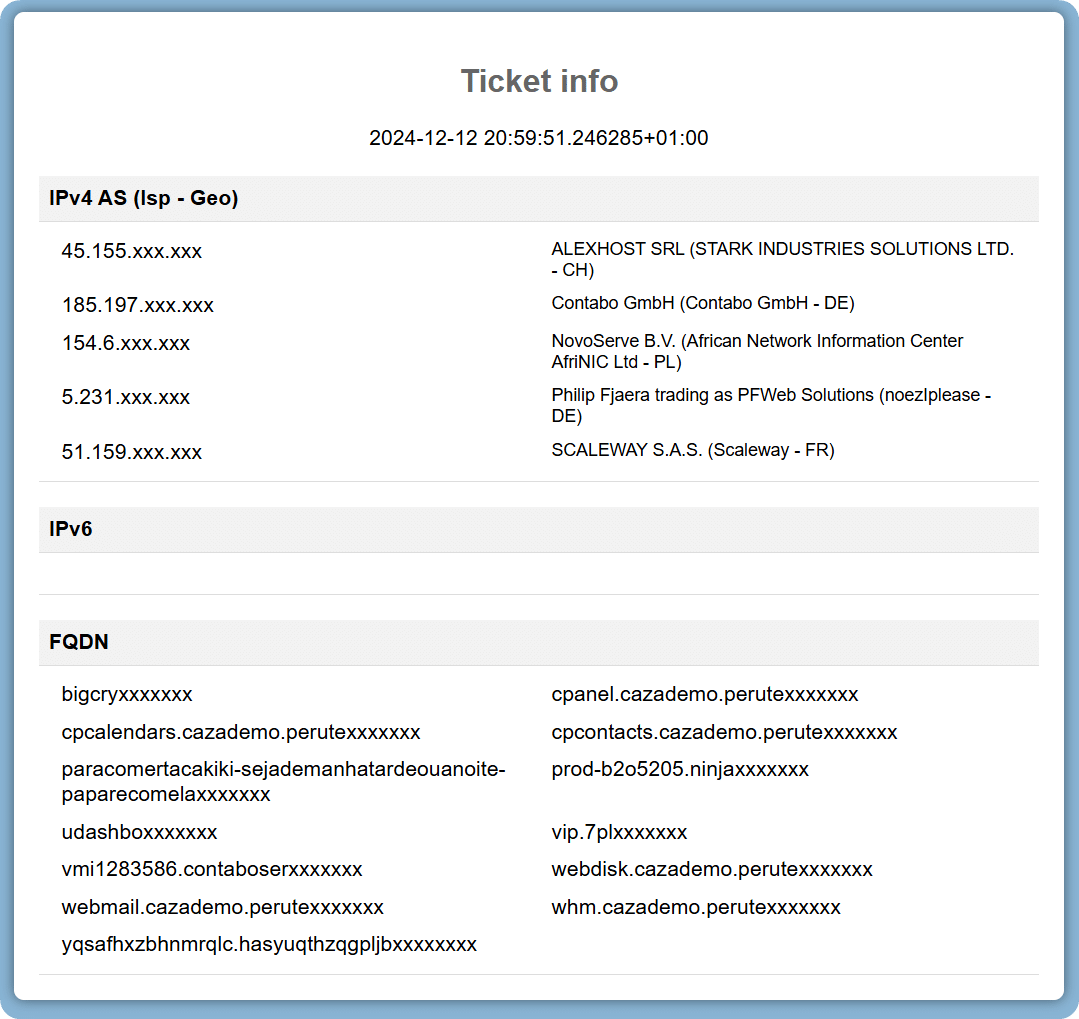
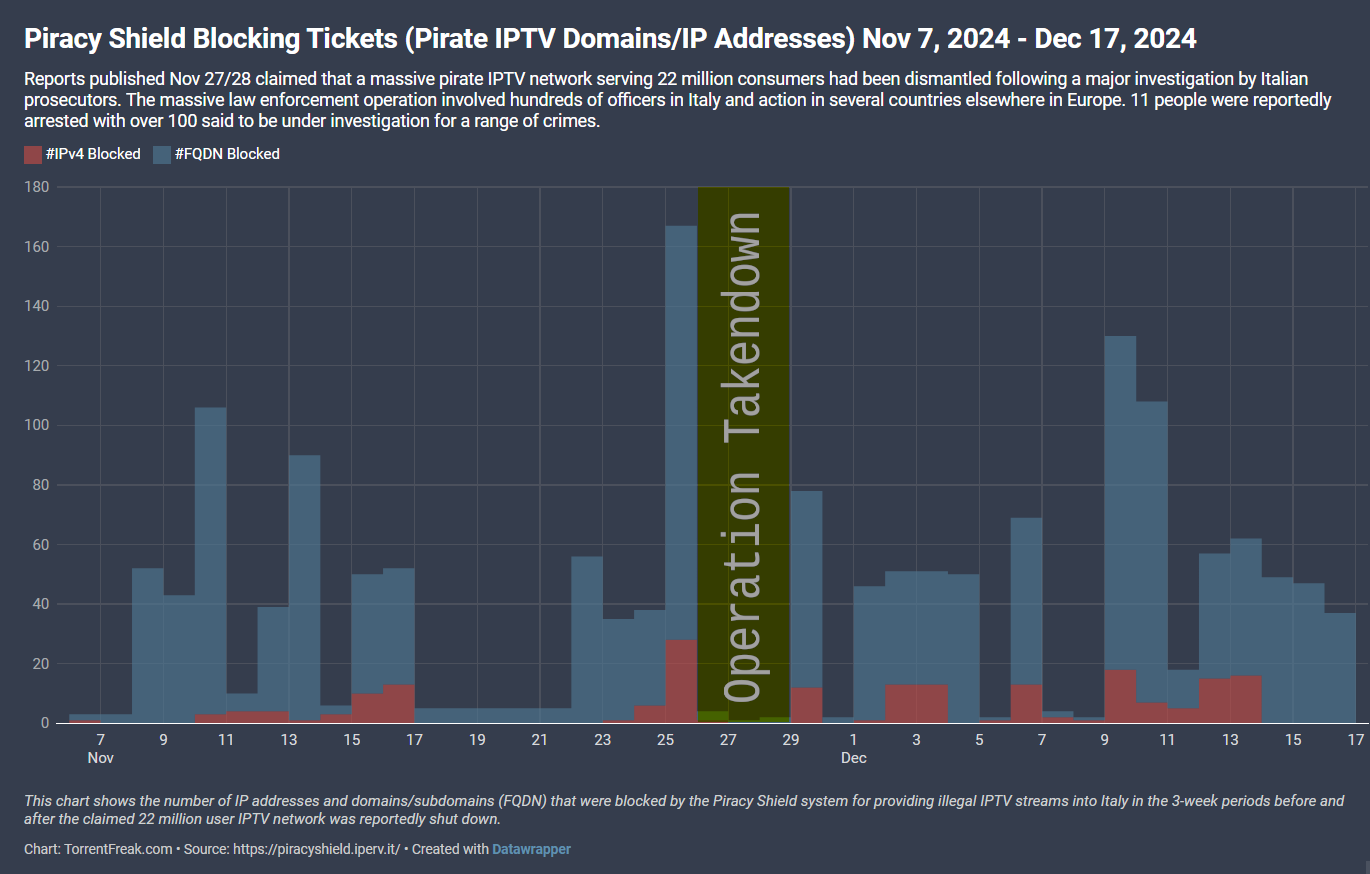

 In the fall of 2002,
In the fall of 2002,

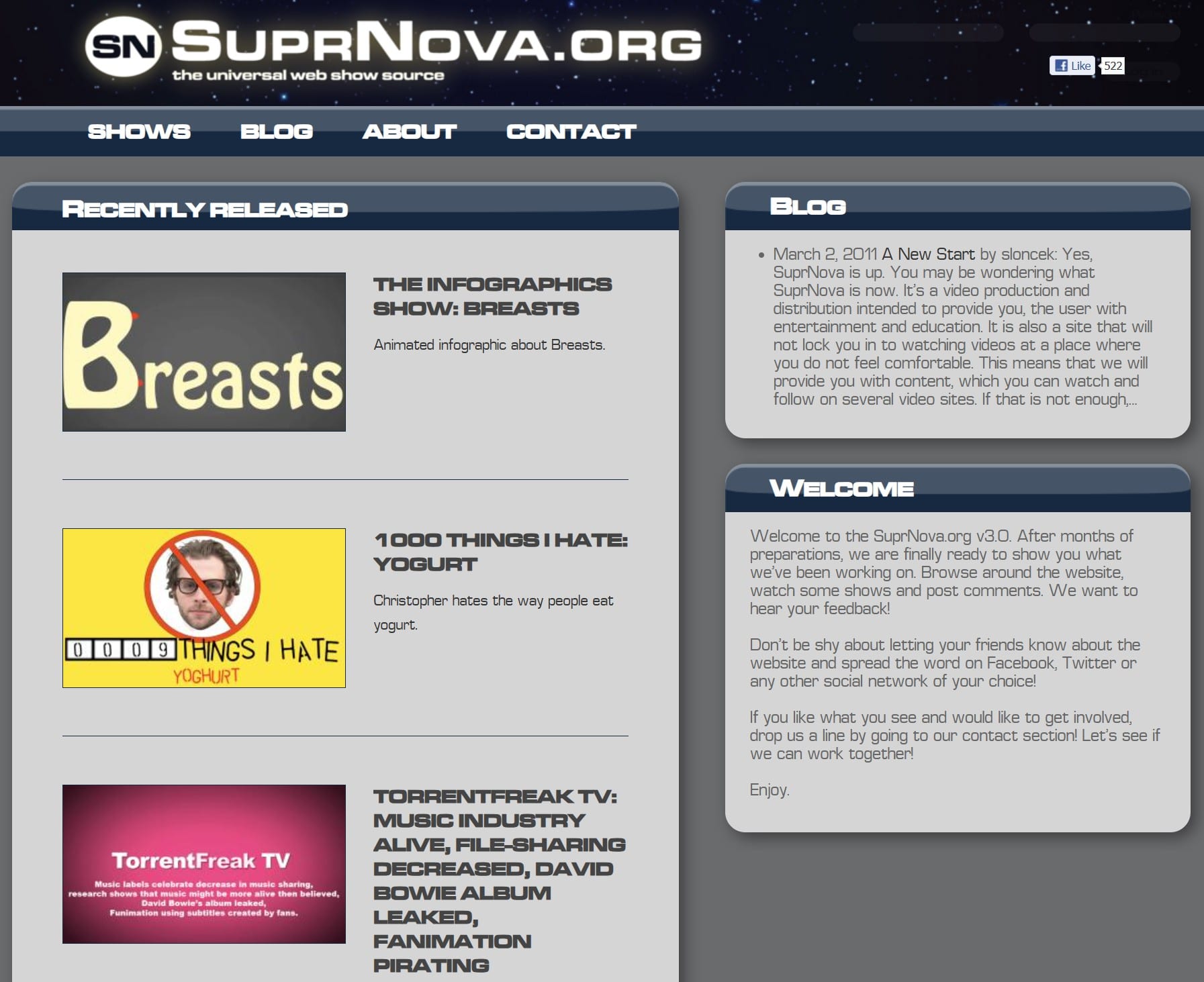

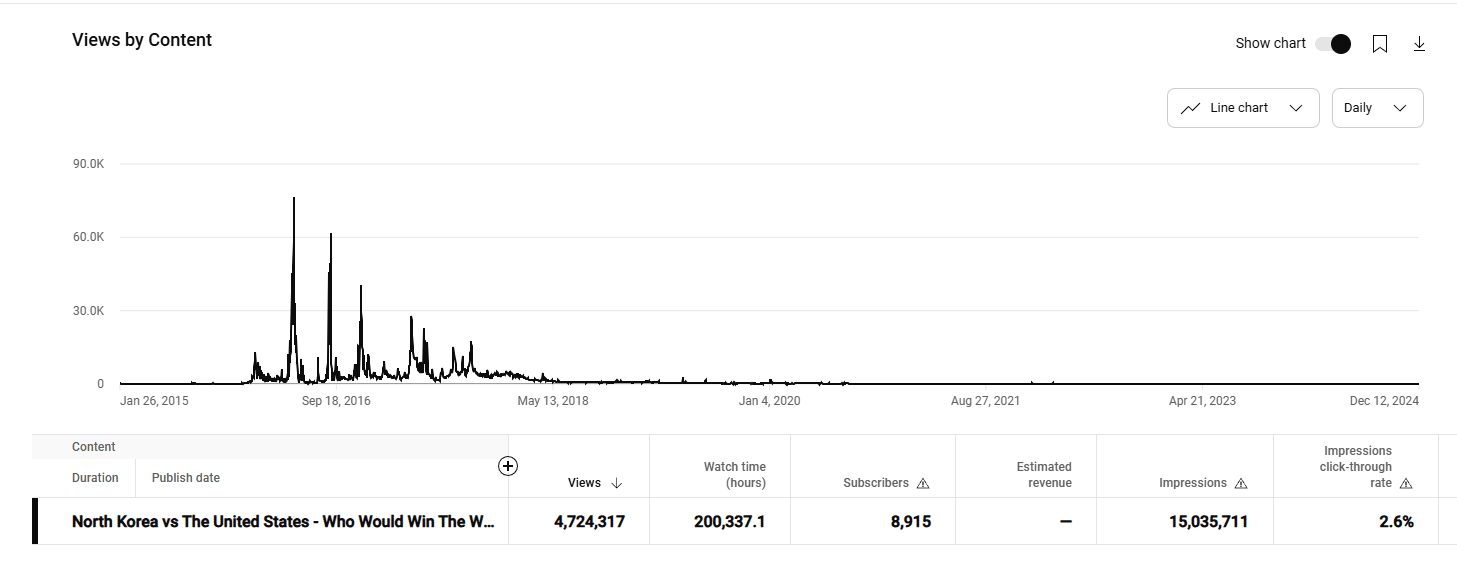

 According to an infamous anti-piracy PSA that just recently celebrated its 20th birthday, downloading a copy of a movie is the same as stealing a physical disc from a regular store, stealing a handbag, or even stealing a car.
According to an infamous anti-piracy PSA that just recently celebrated its 20th birthday, downloading a copy of a movie is the same as stealing a physical disc from a regular store, stealing a handbag, or even stealing a car.
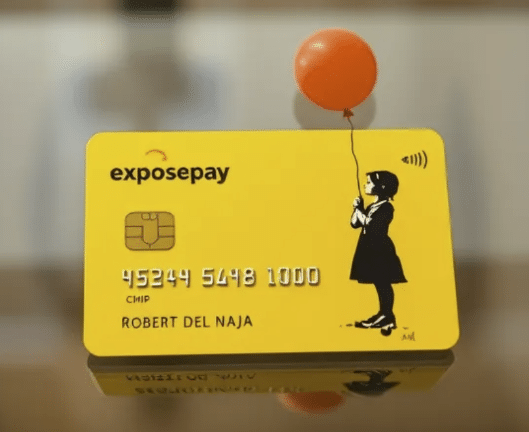 In summary, a man from Gallarate in northern Italy operated a website where pirate IPTV subscriptions were sold. After making payment via Postepay accounts that don’t provide anonymity, customers gained illegal access to streaming content owned by companies including Mediaset, Sky, DAZN, and Disney, but paid them nothing for the privilege.
In summary, a man from Gallarate in northern Italy operated a website where pirate IPTV subscriptions were sold. After making payment via Postepay accounts that don’t provide anonymity, customers gained illegal access to streaming content owned by companies including Mediaset, Sky, DAZN, and Disney, but paid them nothing for the privilege.
 In 2018, Canada’s Federal Court approved the country’s
In 2018, Canada’s Federal Court approved the country’s


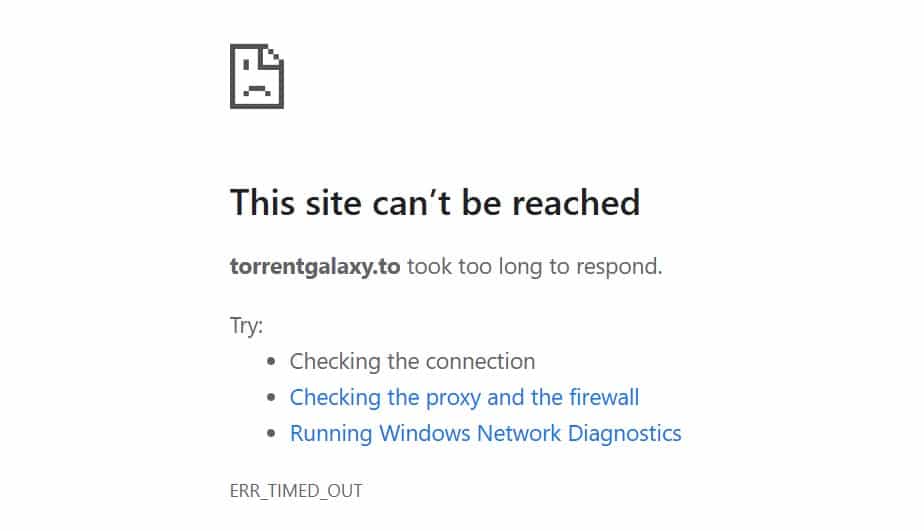


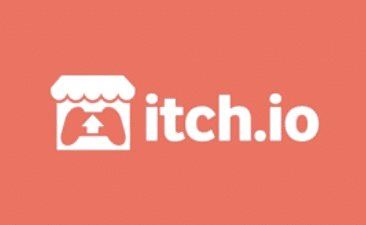 The DMCA takedown procedure may not be perfect but, for those intending to use it, there’s an unambiguous step-by-step process that’s been in place for a quarter of a century.
The DMCA takedown procedure may not be perfect but, for those intending to use it, there’s an unambiguous step-by-step process that’s been in place for a quarter of a century.
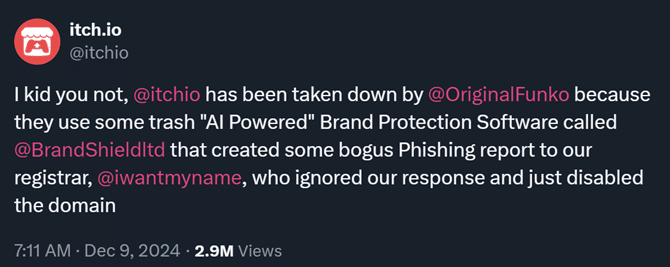
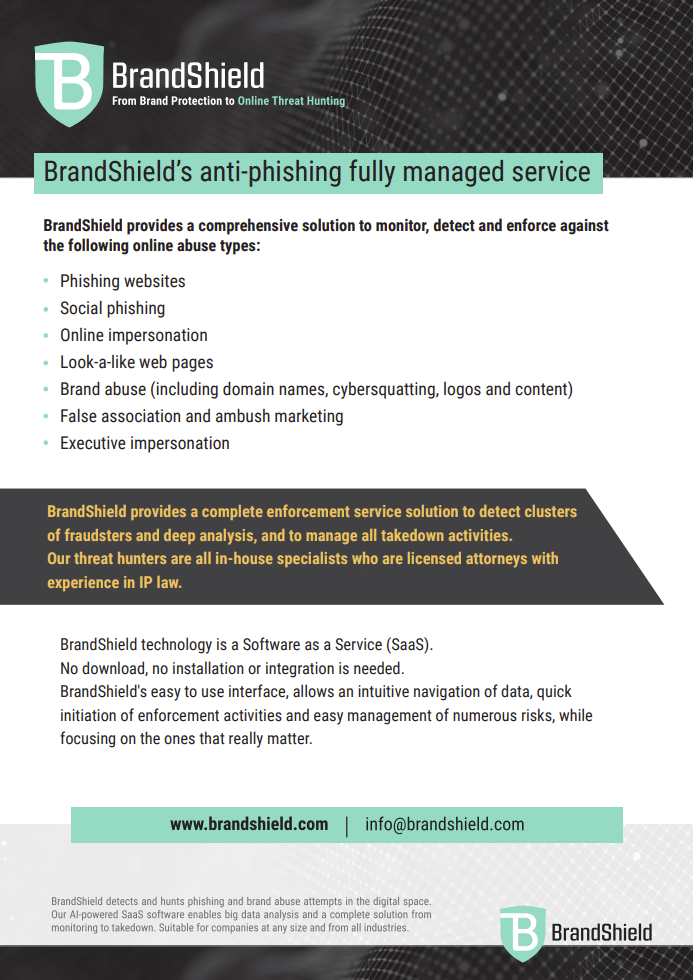 “I honestly think they’re the malicious actor in all of this. Their website, if you care: https://www.brandshield.com/,” Leafo wrote.
“I honestly think they’re the malicious actor in all of this. Their website, if you care: https://www.brandshield.com/,” Leafo wrote.
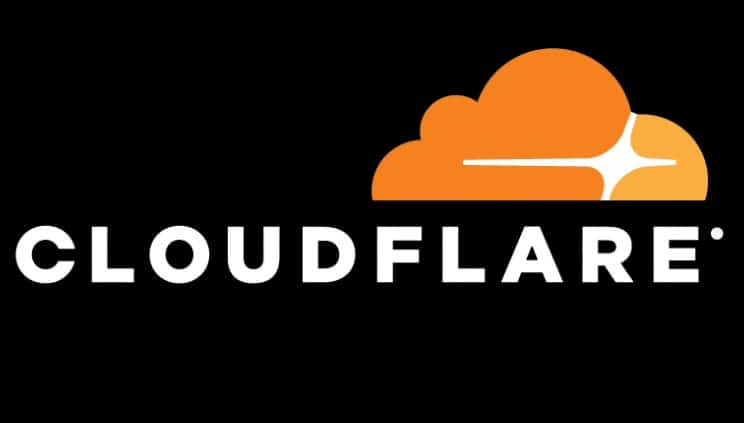 Cloudflare, a global internet infrastructure company, offers various services to millions of users, including connectivity and privacy tools.
Cloudflare, a global internet infrastructure company, offers various services to millions of users, including connectivity and privacy tools.
